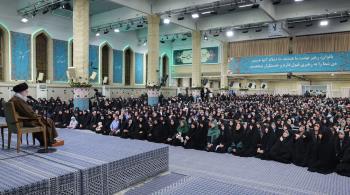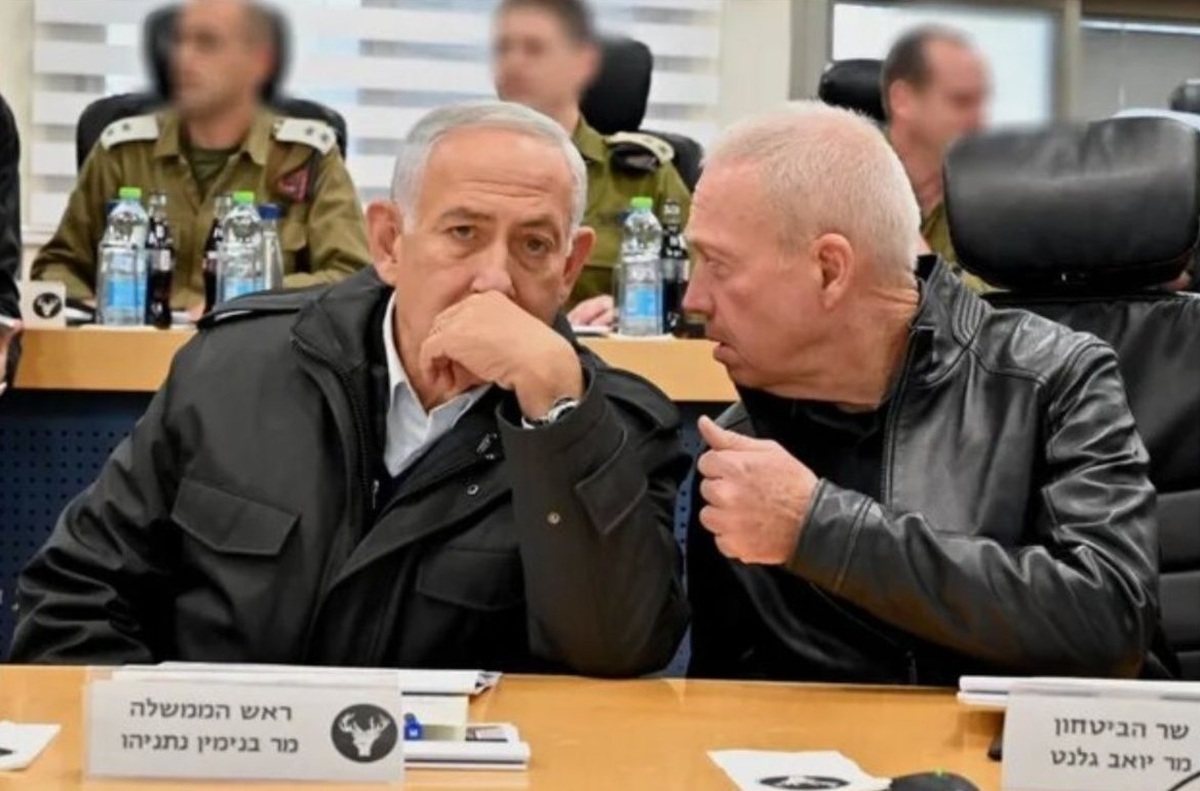Alwaght- For Netanyahu, Gaza war has become like an arrow lodged in the bone. If he withdraws, the situation gets worse, if he carries on, it will certainly lead to his collapse. Perhaps the Gaza war closes his story, many agree.
Stop of war, collapse of Netanyahu
To end the war in Gaza, the Israeli PM has the big obstacle of hardline ministers of his cabinet. National Security Minister Itamar Ben-Gvir and Finance Minister Bezalel Smotrich are categorically against halt of war. Violation of war and restarting it in the past two weeks have taken place under their pressure. Netanyahu is aware that stopping the war will lead to resignation of the allied hardliners of the cabinet. So, he keeps fighting in Gaza to maintain cohesion in his cabinet and avoid collapse.
Wave of opposition to war
As the war continues, waves of opposition to the war in the occupied territories are surging. The demands for return of the prisoners held by Hamas as soon as possible and end of war on the Palestinian enclave are growing while the Israeli army has met its failure in fulfilling its mission of defeating Hamas and freeing the prisoners after over 18 months of genocidal aggression.
The continuous increase in Israeli military and security forces opposing the Gaza war: The Israeli Channel 13 has reported that 200 members of the Israeli army's medical reserve signed a letter demanding the return of Israeli prisoners from the Gaza Strip and an end to the war.
The voices of Mossad agents are rising: On the other hand, the Hebrew-language newspaper Yedioth Ahronoth has reported that 250 former Mossad agents have stressed the return of Israeli prisoners and an end to the war in the Gaza Strip.
52 percent of Netanyahu supporters back war end: Citing latest polls, Channel 12 reported that 52 percent of the voters to the ruling coalition support the return of the prisoners and end of war, while 34 percent are against the end of aggression.
70 percent of Israelis do not trust Netanyahu: Israeli affairs analyst Maamoun Abu Amer stresses that 70 percent of Israelis do not trust the government. Abu Amer adds: "Netanyahu wants to take control of the Israeli security apparatus and prevent the hiring and appointment of anyone who opposes him or the US administration." This has caused political analysts to express their opinions and talk about the unwillingness to connect Israeli decisions with the US government.
1,250-person protest petition: 1,250 members of families of prisoners signed a petition demanding the immediate release of all prisoners; even at the cost of stopping the war. Part of the letter states that "at this stage, the war is primarily serving the political and personal interests of the government and not the security, national, and social interests of the nation and the country."
Growing protests in army: Israeli Public Broadcasting Corporation reported that over 150 units of Israeli army have launched a petition for end of war and return of prisoners. These personnel are from various units, including parachuters, central command, navy seals, Shaldag Unit, special forces (Moran Unit). The petition calls for immediate end of war and release of prisoners under a swap deal.
Impossible ceasefire
On the other hand, under domestic and international pressure on Netanyahu's cabinet to stop the war, in the past few days the PM announced his proposed package for a ceasefire in Gaza, but this package seems to be an infeasible proposal from Netanyahu aimed at easing the pressure on the cabinet. In fact, Netanyahu's proposed package for a ceasefire is disconnected from realities in Gaza.
Al-Mayadeen news network has published details of the ceasefire document handed over to the mediators and Hamas. It includes release of Eydan Alexander, the American-Israeli prisoner, in the day one of the agreement as a special step towards the US.
The proposed document also includes a framework for a temporary ceasefire for 45 days, which would include a cessation of military operations, the entry of humanitarian aid, and an exchange of prisoners between the two sides. The proposal calls for the disarmament of the Gaza Strip and the establishment of a mechanism to ensure that aid reaches only civilians, and emphasizes that the release of prisoners should be without a parade or any public ceremony.
The offer includes the release of five living Israeli prisoners on the second day in exchange for the release of 66 Palestinian prisoners sentenced to life imprisonment and 611 prisoners from the Gaza Strip. The third day will be negotiations on disarmament and a permanent ceasefire. After the release of the five prisoners under the offer, which includes the entry of aid and equipment necessary to shelter refugees in the Gaza Strip, the Israeli army will begin redeploying in the Rafah area and northern Gaza Strip. On the seventh day, Hamas will release four prisoners in exchange for 54 Palestinian prisoners sentenced to life imprisonment and 55 detainees after October 7, 2023. On the tenth day, Hamas will provide information on all remaining living Israeli prisoners in exchange for access to information on Palestinian prisoners.
According to the proposal, on the twentieth day, Hamas will deliver bodies of 16 dead prisoners in return for bodies of 160 Palestinians and the mutual swap process will take place in a single day.
The proposal mentions the possibility of extension of the ceasefire should the two sides reach an agreement with specific conditions. Also, Egypt, Qatar, and the US will continue their efforts to guarantee conclusion of the talks for an ultimate deal.
However, one of Hamas leaders told Al-Arabi Al-Jadeed that all resistance factions reject this Israeli proposal since it includes disarmament article. Also, it does not include parts on end of war and Israeli retreat from all Gaza.
The Hamas member added that "there is an American-Israeli plan to seize the card of prisoners from the resistance and its aim is to implement the plan of the US president to evacuate Gaza and force its residents out. Israeli Prime Minister Benjamin Netanyahu and the US President Donald Trump are gambling on the fate of the prisoners."



























